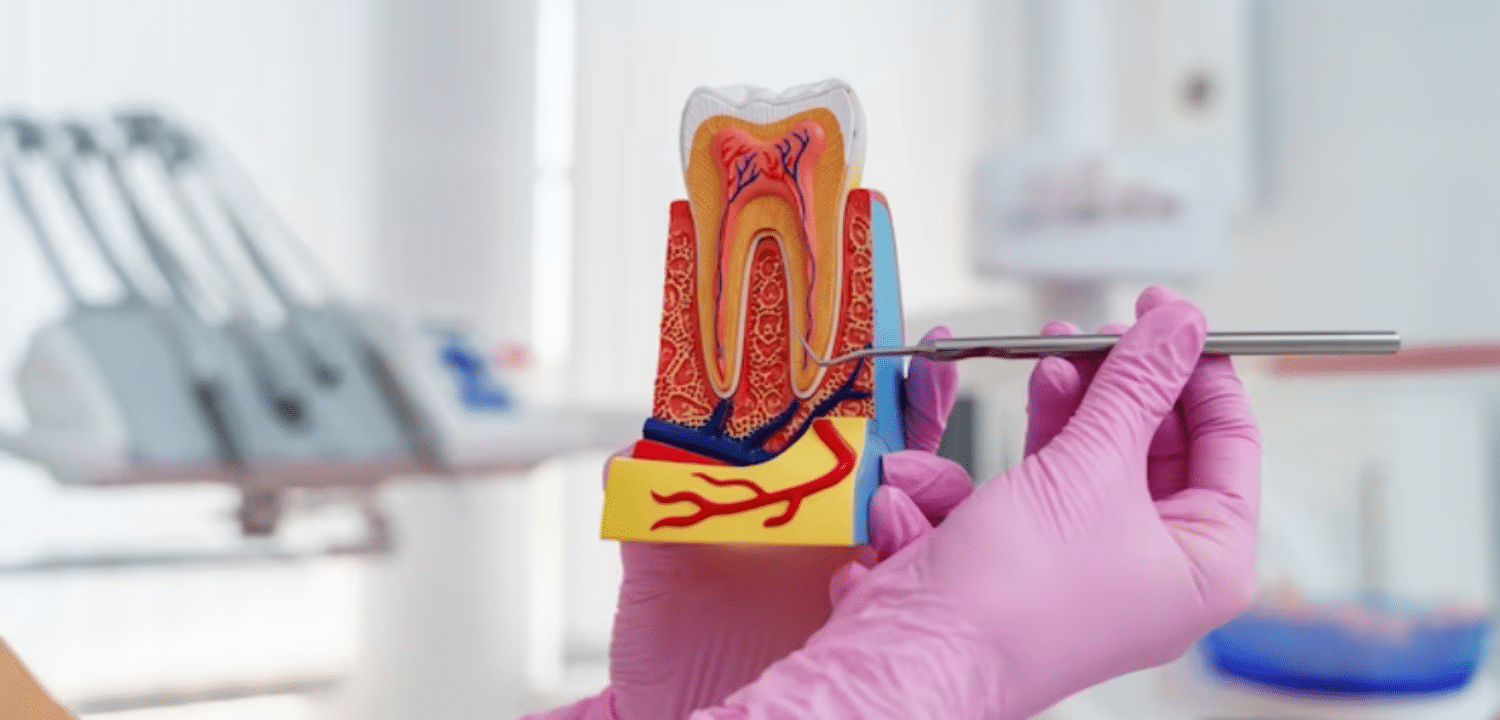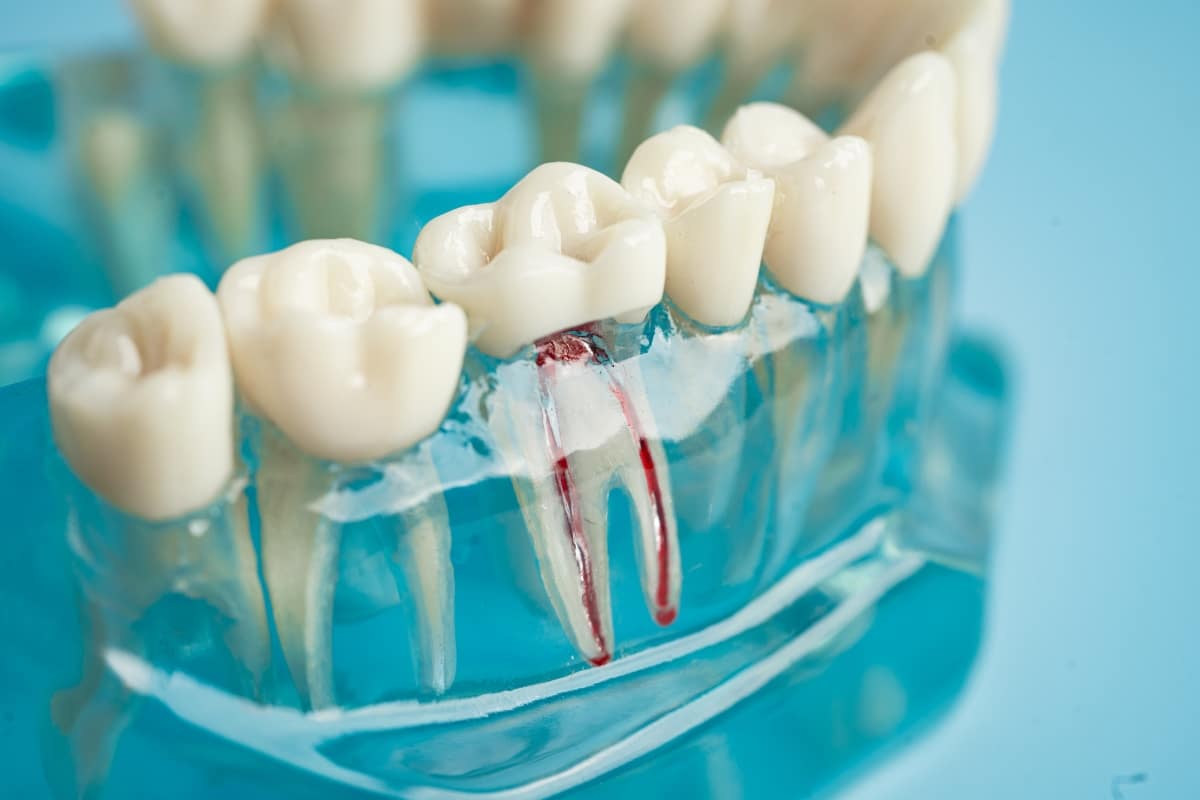Same-day treatments are available.
Signs You May Need A Root Canal in Cypress

Experiencing persistent tooth pain or sensitivity? Knowing when a root canal is necessary can prevent the condition from worsening and preserve your natural tooth. Root canals remove infected tissue from the inside of a tooth, easing pain and preventing further damage. In this blog, we’ll go through the signs that indicate you may need a root canal when to see a dentist in Cypress and what to expect during the procedure. Whether dealing with discomfort or staying informed, here’s what you need to know about root canals.
1. Persistent Tooth Pain: A Major Warning Sign
- Constant Ache: Ongoing tooth pain is one of the most common indicators of an issue deep within the tooth.
- Location Matters: The pain may radiate from the tooth to the jaw or ear, worsening over time.
- Timing: If pain persists for more than a day or two, it’s worth consulting a dentist in Cypress.
Why It Matters: Consistent pain often suggests that decay or infection has reached the tooth’s pulp, requiring a root canal to stop further damage.
2. Sensitivity to Hot or Cold
- Unusual Sensitivity: When consuming hot or cold foods, sharp pain might signal infection.
- Lingering Sensitivity: While some sensitivity is normal, prolonged discomfort could be a sign that the tooth’s nerve has become exposed.
- When to Seek Help: If your sensitivity doesn’t go away quickly, consider scheduling a dental appointment in Cypress.
Why It Matters: Persistent sensitivity typically indicates inflammation in the tooth’s pulp chamber, which may need immediate attention or root canal therapy to avoid further complications.
3. Discoloration of the Tooth
- Change in Color: An infected tooth often darkens, taking on a grayish or brownish hue.
- Causes: This discoloration results from nerve and tissue damage within the tooth, often due to infection or trauma.
- Consultation Needed: Seeing a Cypress dentist can help determine if this discoloration requires a root canal.
Why It Matters: Discoloration is usually a visible warning that the nerve inside the tooth is compromised, indicating the need for root canal treatment.
4. Gum Swelling or Tenderness
- Swelling Near the Affected Tooth: Swollen gums around a specific tooth might suggest an infection within the tooth’s pulp.
- Tenderness and Pain: The gums may feel sore, tender, or even painful to touch.
- Warning of Infection: Swelling might be a sign of an abscess, requiring an urgent dental visit in Cypress.
Why It Matters: Swollen gums signal that an infection may have spread beyond the tooth and needs to be treated to prevent the condition from worsening.
5. Small Bumps on Gums (Fistulas)
- What They Are: Fistulas, or small pimple-like bumps on the gums, often appear near an infected tooth.
- Sign of an Abscess: They indicate pus draining from the infected area.
- Don’t Ignore It: Contact a dentist in Cypress if you notice these bumps near a painful or discolored tooth.
Why It Matters: Fistulas are a common sign of dental abscesses, which typically need root canal treatment to resolve the underlying infection.
6. Cracked or Chipped Tooth
- How It Happens: A cracked or chipped tooth can expose the inner layers, making it more susceptible to infection.
- Infection Risk: Bacteria can easily reach the pulp through cracks, leading to inflammation.
- Act Quickly: Visit your Cypress dental office to assess the damage and see if a root canal is needed.
Why It Matters: Addressing cracks early can prevent a root canal from becoming necessary, but if infection sets in, a root canal may be the only solution.
7. Loose Tooth Due to Infection
- Why It Occurs: Infections can weaken the surrounding bone, making a tooth feel loose.
- Importance of Prompt Attention: A loose tooth could mean that the infection has spread and requires urgent intervention.
- Consultation Is Key: If your tooth feels loose and is accompanied by other symptoms, contact a dentist in Cypress.
Why It Matters: While loose teeth are common in children, they signal potential infection in adults and often require immediate treatment.
8. What to Expect During a Root Canal in Cypress
- Assessment and Preparation: Your dentist will examine the tooth and take X-rays to confirm the extent of the infection.
- Numbing the Area: Local anesthesia ensures a comfortable experience.
- Cleaning and Sealing: The infected tissue is removed, and the area is disinfected and sealed to prevent reinfection.
- Aftercare: Following the procedure, most patients experience relief from symptoms and can resume normal activities within a day or two.
Why It Matters: Knowing what to expect can help you feel more at ease about the process, ensuring timely care when you need it most.
If you’re experiencing any of these symptoms, visiting a dentist for a root canal in Cypress could save your tooth and ease your pain. Remember, early treatment is key to preventing further complications. Contact a Cypress dental professional to keep your smile healthy and pain-free.

7 Foods and Drinks to Avoid After Professional Teeth Whitening in Cypress

What to Expect After a Root Canal Treatment in Cypress



